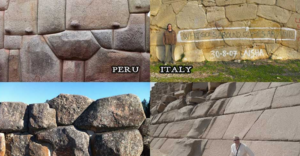6,500 years before Stonehenge and 7,000 years before the pyramids were constructed, a cult megalithic complex sat atop the hills near current day Sanliurfa, in southeast Turkey. Göbekli Tepe was flourishing an astonishing 12,000 to 14,000 years ago. Today the preserved remains still exhibit high degrees of sophistication and megalithic engineering skill. Back in the 1990’s when Robert Schoch exclaimed that the Sphinx could be many thousands of years older than previously thought, he was ridiculed. Graham Hancock’s popular theories of a 12,000-year-old Ice Age civilization were slammed. With Göbekli Tepe we now have a unique and remarkably ancient complex that has been carbon-dated by German archaeologists to the end of the last ice-age that is shaking the foundations of science and history and awakening an interest in our human origins.
The Ancient Megalithic Site of Gobekli Tepe
In September 2013 I had the opportunity to go and see Göbekli Tepe for myself. I joined forces with authors Andrew Collins and Graham Hancock on a Megalithomania expedition around Turkey to investigate this enigmatic discovery. Graham was as astonished as I was. For such an old structure, the quality of stonework and abstract artistic skill just seems too advanced for its era.
Hercules head among treasure trove found at Antikythera Mechanism shipwreck (photos)
American archaeologist Peter Benedict first discovered something was going on there in 1963, noticing prehistoric flints all over the area. He also discovered some broken fragments of beautifully crafted T-shaped blocks with relief carvings. However, due to the superior quality of the stonework, they were classified as Byzantium artifacts. Interestingly this stone, now on display in Urfa Museum, looks conspicuously like one I had previously seen at Sillustani in Peru. In 1994, a German archaeologist named Klaus Schmidt recognized Göbekli Tepe as part of the “pre-pottery Neolithic” culture because this style of carving was similar to a site he had worked at earlier: Nevalı Çori.
Read more: Ancient Origins
Ask me anything
Explore related questions





